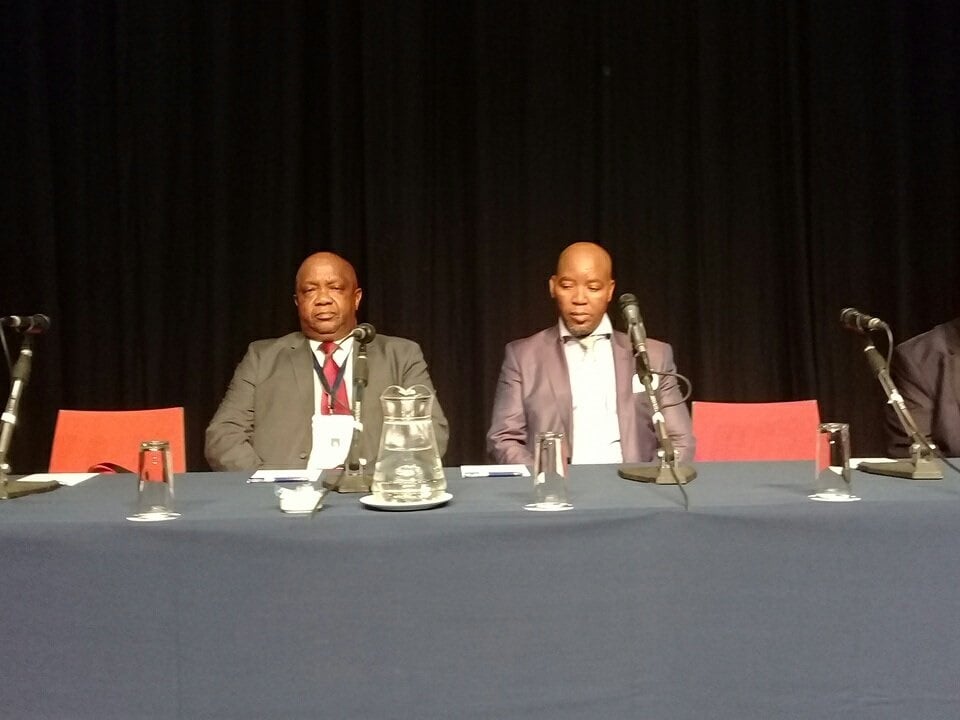
Attention has been diverted from championing the interests of black entrepreneurs to endless struggles for leadership positions, writes Septi Bukula.
The National African Federated Chamber of Commerce and Industry (Nafcoc) has a proud history as South Africa’s oldest black business organisation.
Established in 1964, during the height of apartheid, to advance the interests of black traders, Nafcoc has championed black entrepreneurship with a determined spirit against incredible odds.
That the organisation not only continues to exist but has also long established itself as one of the largest business organisations in the country is testament to the resilience of its founding vision.
Countless black entrepreneurs in different sectors across the country proudly associate themselves with the organisation.
They look to and work hard within it to advance their business interests and aspirations within the country’s economic mainstream.
It is a sad reality that several difficulties still stand in the way of those seeking to establish and run successful businesses of their own, particularly those from historically economically excluded communities.
However, the dawn of democracy opened up significant space for black entrepreneurs to successfully pursue their economic aspirations and play a meaningful role in the country’s economy.
Many historical government-induced impediments have been demolished and replaced with friendly policies, as well as dedicated support institutions and programmes.
To succeed and deliver real benefits to black entrepreneurs, these efforts need the support and active engagement of organisations such as Nafcoc.
Speaking to about 2 000 delegates gathered at his first President’s Conference on Small Business in Durban in March 1995, then president Nelson Mandela acknowledged that government alone could not undo apartheid’s legacy of economic segregation.
Government’s white paper on small business promotion, which was launched at the conference, specifically identifies organised business bodies as key partners in small business promotion efforts:
“Business chambers, as well as industry or sector associations, are expected to play an increasingly important role in the implementation of support programmes and the shaping of policies.”
There is an open invitation to the likes of Nafcoc to come and sit at the policy table and partner with government to bring about real change to the benefit of black entrepreneurs across the country.
Various government policy documents since then have invited organised business bodies to partner with government to drive its small business policies and support programmes.
As an organisation that proudly stands at the forefront of black business in South Africa, Nafcoc should have led the way in responding to these invitations.
With undistracted focus on advancing the interests of black entrepreneurs, Nafcoc could make a significant contribution towards removing the many remaining obstacles that confront entrepreneurs generally, and black entrepreneurs in particular.
In its 2001 National Integrated Black Economic Empowerment Strategy, the Black Economic Empowerment Commission wrote that “business organisations should play a central role in economic growth and development”.
In my more than 25 years of involvement in entrepreneurship and small business legislation, policy, and programme research and analysis in South Africa and elsewhere, I have deeply admired the remarkable role played by small business organisations in various parts of the world to help entrepreneurs succeed.
These include the Canadian Federation of Independent Business, the Federation of Small Business in the UK, the National Federation of Independent Business in the US, and the National Association of Small & Medium Enterprises in Taiwan, to name but a few.
These organisations produce high-quality research on various small business issues, which they use to advocate and shape government policies and programmes to the benefit of entrepreneurs and their businesses.
These business organisations and their counterparts elsewhere also design and implement programmes of their own to support the growth and success of small businesses.
Sadly, this has not been the case with Nafcoc, South Africa’s oldest black business organisation.
For an indeterminate length of time now, Nafcoc has been engaged in self-destructive leadership contestations, which have diverted its attention from the core business of championing the interests of black entrepreneurs to endless court actions and other struggles as individuals and groups vie for leadership positions.
What makes these battles so unfortunate is that they are fought over resources that the organisation earned to empower its members.
In what was a real stroke of entrepreneurial genius, black business organisations took advantage of the country’s early BEE policies to establish investment vehicles designed to help them generate resources to support their operations.
Nafcoc established Nafcoc Holdings (Nafhold) and later Silver Vanity.
These became significant business ventures, generating vast sums annually from BEE stakes held in various companies.
As revenues grew, wars started with, sadly, no end in sight.
The real losers from these squabbles are the very black entrepreneurs Nafcoc was founded to help succeed.
Ultimately, the country also loses out.
If it is professionally and ethically led, Nafcoc can play an important role in advancing black entrepreneurship in the country.
It’s time that its members, first and foremost, and black entrepreneurs generally, start insisting that this be so.
Nafcoc urgently needs to rediscover its founding mission and do its part to help South Africa succeed by contributing to the creation of the right conditions for successful black entrepreneurship.
Bukula is an entrepreneurship and small business policy and programme analyst, and director of Osiba Analytics




 Publications
Publications
 Partners
Partners








